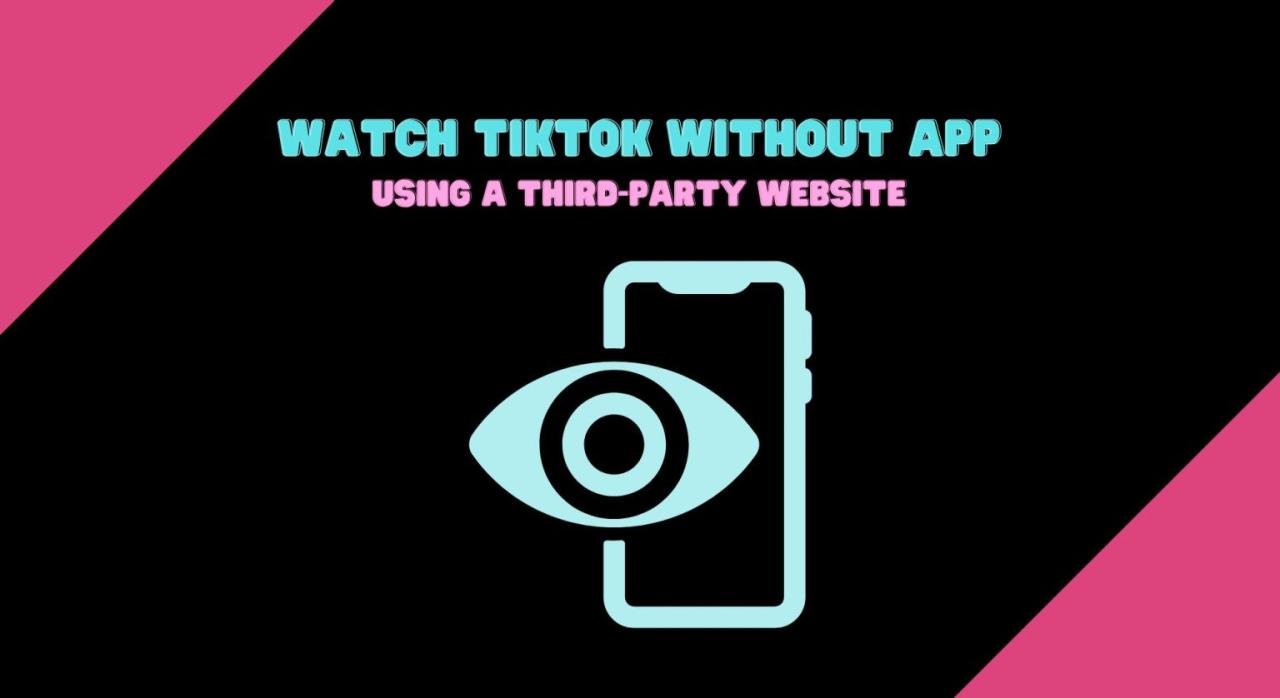As watch tik tok without app takes center stage, this opening passage beckons readers into a world crafted with good knowledge, ensuring a reading experience that is both absorbing and distinctly original.
In today’s digital landscape, TikTok has gained immense popularity as a platform for sharing short videos. However, many users seek ways to enjoy TikTok content without downloading the app itself. This guide will explore various methods to watch TikTok videos online, providing insights into the available options that make accessing this engaging content simple and hassle-free.
In the digital age, where information is abundant and easily accessible, the importance of effective communication cannot be overstated. Whether it’s through emails, social media, or face-to-face interactions, our ability to convey information clearly and concisely is essential for success in both personal and professional realms. This article explores the nuances of effective communication, highlighting its significance, key components, and tips for improvement.
Effective communication is the cornerstone of any relationship, be it personal or professional. It fosters understanding, builds trust, and creates a supportive environment. In the workplace, for example, clear communication can lead to improved productivity, reduced misunderstandings, and a more cohesive team dynamic. In our personal lives, effective communication helps to strengthen bonds, resolve conflicts, and express needs and emotions.
As such, mastering this skill is vital for anyone looking to enhance their interactions with others.
At its core, effective communication involves several key components: clarity, conciseness, engagement, and active listening. Clarity is the foundation upon which all communication rests. When we communicate clearly, we reduce the chance of misunderstandings and ensure that our message is received as intended. This can be achieved by using simple language, avoiding jargon, and being straightforward in our delivery.
Conciseness goes hand-in-hand with clarity. In a world inundated with information, people often appreciate brevity. Being concise means getting to the point quickly while still covering the necessary details. This not only respects the time of our audience but also enhances the likelihood that they will retain the information. In professional settings, for instance, concise emails or presentations are often more effective than lengthy, drawn-out explanations.
Engagement is another critical aspect of effective communication. It involves capturing the attention of the audience and keeping them interested in what you have to say. This can be achieved through storytelling, incorporating visuals, or even asking questions that encourage participation. When an audience is engaged, they are more likely to absorb information and respond positively to the communication.
Active listening is perhaps one of the most underrated components of effective communication. It involves fully concentrating on the speaker, understanding their message, responding thoughtfully, and remembering key points. Active listening fosters empathy and respect, allowing for deeper connections and more meaningful exchanges. It’s crucial to give the speaker your undivided attention, avoiding distractions and being present in the moment.
Now that we’ve covered the essential components of effective communication, let’s delve into practical tips for improvement. Whether you’re looking to enhance your skills in a professional context or improve your personal relationships, these strategies can help.
1. Practice Mindfulness
Being present in conversations allows you to engage more fully and understand the other person’s perspective. Mindfulness techniques can help you focus better and respond more thoughtfully to others.
2. Ask for Feedback
Soliciting feedback from peers, colleagues, or friends can provide valuable insights into your communication style. Understanding how others perceive your messages can help you identify areas for improvement.
3. Embrace Nonverbal Cues
Body language, facial expressions, and tone of voice can all convey meaning beyond words. Being aware of your own nonverbal cues and interpreting those of others can enhance your communication effectiveness.
4. Be Open-Minded
Effective communication often requires us to consider different viewpoints. Approach conversations with an open mind, and be willing to engage in constructive dialogue.
5. Practice Empathy
Try to understand the emotions and motivations of others. This not only helps in addressing their concerns more effectively but also fosters a deeper connection between you and your audience.
6. Use Technology Wisely
In today’s digital landscape, communication often takes place through emails, texts, or social media. While these channels can be convenient, it’s essential to use them wisely. Be mindful of your tone and clarity in written communication, as the lack of nonverbal cues can lead to misunderstandings.
7. Improve Your Writing Skills
Whether you’re drafting reports, sending emails, or creating presentations, strong writing skills are crucial. Take the time to proofread your work, ensure clarity, and organize your thoughts logically.
8. Learn to Handle Conflict
Conflict is a natural part of any relationship, but how we navigate it can make all the difference. Approach disagreements with a calm demeanor, focus on the issue at hand rather than personal attacks, and strive to find a resolution that satisfies both parties.
9. Engage in Public Speaking
Public speaking can be a powerful tool for improving communication skills. Consider joining groups like Toastmasters or participating in community events to practice and refine your speaking abilities.
1
0. Reflect on Conversations
After key conversations, take a moment to reflect on what went well and what could be improved. This practice can help you identify patterns in your communication style and develop strategies for future interactions.
In conclusion, effective communication is an essential skill that impacts every aspect of our lives. By focusing on clarity, conciseness, engagement, and active listening, we can significantly enhance our interactions with others. Implementing practical tips and continuously seeking improvement will not only lead to more successful personal and professional relationships but also contribute to a more harmonious society. As we navigate the complexities of communication in our increasingly interconnected world, let us strive to be better communicators, fostering understanding and connection in all our interactions.
Top FAQs
Can I watch TikTok videos on a web browser?
Yes, you can view TikTok videos directly on their website without needing to download the app.
Are there any limitations to watching TikTok without the app?
Some features may be restricted, such as the ability to create and upload videos or engage with other users directly.
Is my data safe when watching TikTok online?
Generally, using the official website is safe, but always ensure your internet connection is secure.
Do I need an account to watch TikTok videos online?
No, you can watch videos without creating an account, although having one provides a personalized experience.
Can I share TikTok videos I watch online?
Absolutely! You can share links to videos you find interesting with friends and family easily.












